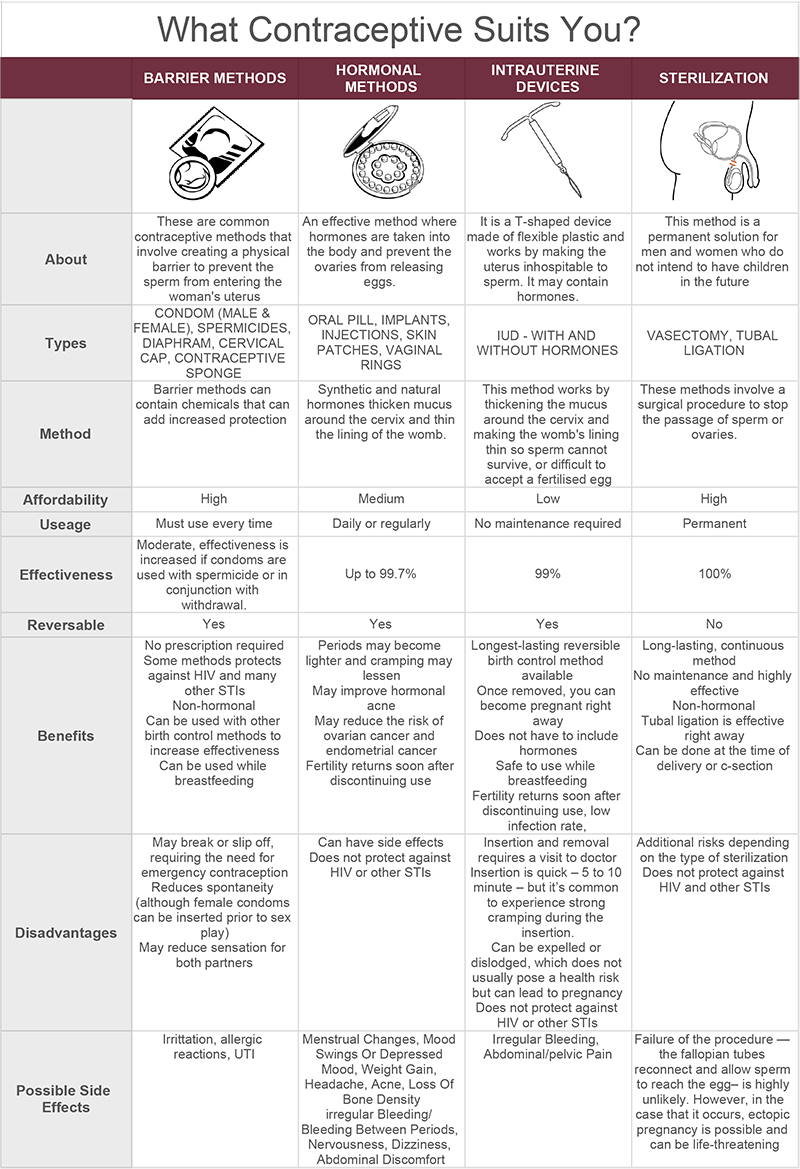Contraception
Contraception, also known as birth control, is the prevention of pregnancy by interfering with the process of conception and implantation.
Types of Contraceptive Methods
There are several different methods of contraception for both women and for men, which may suit you at different times in your life.

BARRIER METHODS
These are the most common and involve using a physical barrier to prevent the sperm from entering the woman's uterus. Methods include:
- Male condom: a thin latex or polyurethane covering rolled over the erect penis before sexual intercourse.
- Female condom: a polyurethane tube inserted into the vagina before sexual intercourse.
- Spermicides: a substance that kills the sperm.
HORMONAL METHODS
Synthetic and natural hormones may be taken orally, implanted into body tissue or placed in the vagina. They prevent ovaries from releasing eggs, thicken mucus around the cervix and thin the lining of the womb. They are 99.7% effective if used correctly.
Options include:
- Combined pill: contains synthetic forms of the hormone oestrogen and progesterone.
- Mini pill: contains a synthetic form of only one hormone, progesterone.
- Vaginal ring: A 'one size fits all' ring, placed into the vagina to slowly release hormones. The ring only lasts for three weeks.
INTRAUTERINE DEVICES (IUD):
An IUD is a small device containing copper or hormones that is inserted into the uterus by a doctor. IUDs are more than 99% effective and work by changing the environment of the uterus so sperm cannot survive.
MINERA
Minera is an effective Intrauterine Device (IUD)
ARE IUD’s SAFE
Are Intrauterine Device (IUD)’s Safe?






